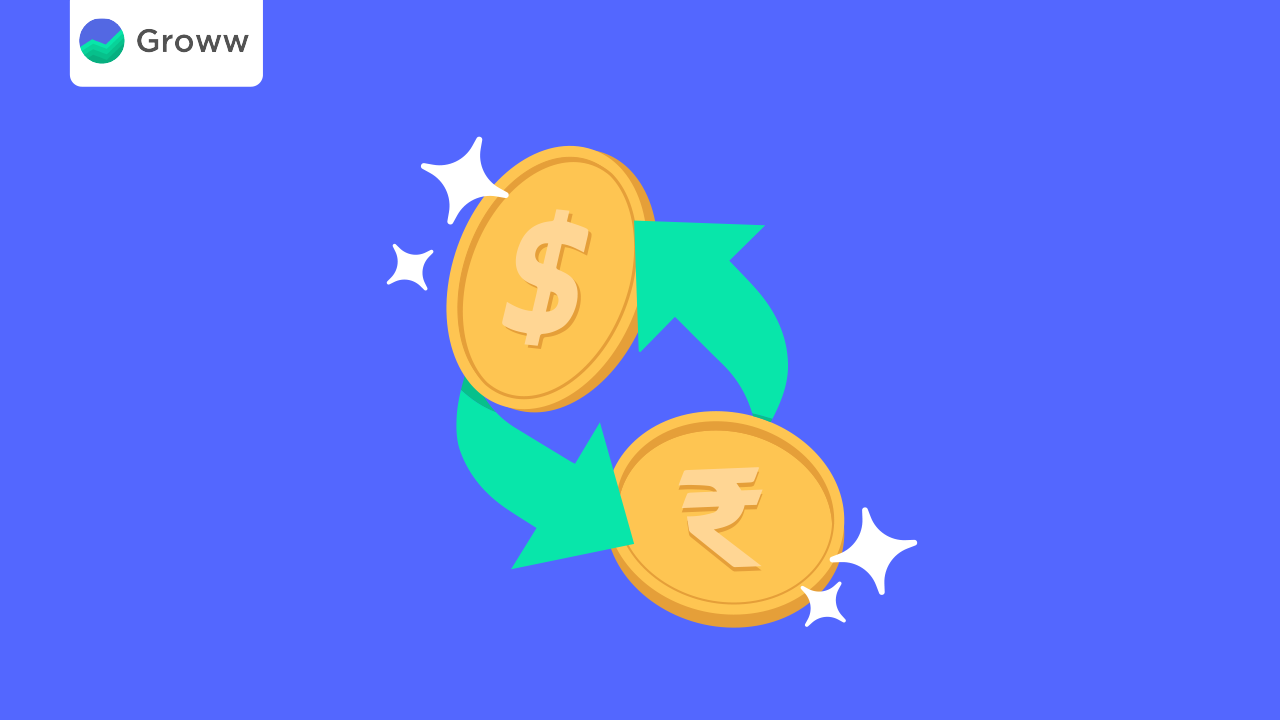Factors Influencing Foreign Exchange Rates

Trading one currency for another is called foreign exchange (forex). For instance, you can trade Rs 5,000 for its equivalent in US dollars if you need the latter (for travel to the US, for example).
What Is A Foreign Exchange Rate?
The forex rate is the rate at which a currency is exchanged. For example, if the Indian rupee trades at Rs 72.96 to one dollar, the forex rate for the US dollar for the Indian rupee is 72.96.
This rate can change depending on many factors. Therefore, forex rates are closely watched by currency traders and governments, who take steps to keep the rate advantageous to the country’s economic health.
These exchange rates can have a tangible impact on investor portfolios on a granular level in terms of genuine returns.
Read on to find out more about important factors affecting exchange rates.
Factors Influencing Exchange Rates
1. Inflation
If a country has low inflation rates consistently, its currency value typically rises. This is because the currency’s purchasing power becomes higher than the other currencies with which it is compared.
Conversely, higher inflation rates lead to the currency depreciating in value, losing out on purchasing power and value against other currencies.
2. Interest Rates
If a country has a high-interest rate, lenders have the chance to earn more. This attracts foreign capital looking to earn at higher rates. The result is that the country’s foreign exchange rate rises, making its currency stronger.
Interest rates are directly correlated to inflation as well as exchange rates.
A country’s central bank will try to influence inflation or exchange rates via the interest rate mechanism. High-interest rates mean a higher cost of borrowing. It could happen that despite an interest rate hike, inflation does not come down in any meaningful sense, which will have less-than-expected effects on the exchange rate.
Conversely, interest rate decreases tend to depress exchange rates.
3. Deficits
One of the most critical deficit parameters is the current account deficit – the difference between a country’s spending and what it earns. A current account deficit means that the country is spending more to buy than what it earns.
Consequently, its foreign currency earnings via exports are not enough; it will need to borrow money from abroad to make up the difference. This high demand for foreign currency lowers the country’s exchange rate.
4. Debt
When a country engages in large-scale infrastructure projects, it generally will not have all the funds for them. So, it borrows funds domestically as well as from abroad.
These projects stimulate the economy; however, the deficit created by the public debt it takes makes it an unattractive investment destination. A large public debt is a recipe for high inflation, i.e., the country’s currency gets weaker, and it will need more time to service debt and interest payments, affecting borrowers’ returns.
The worst-case scenario? If the country has to default on its loans because it cannot pay them back due to its enormous debt, high inflation, and depressed exchange rates.
Also read How Does Inflation Impact the Stock Market?
5. Import-Export
Exporting earns a country some money, while importing is spending it. If a country’s exports are growing at a higher rate than its imports, it’s a good sign for its currency exchange rate.
Higher exports mean increased demand for the country’s currency and therefore its value.
Key Takeaways
- Inflation, interest rates, and forex rates are correlated. Each of these factors can affect the other two.
- Low inflation and high-interest rates can attract foreign funds to a country, strengthening its exchange rate.
- Countries with large public debt can see their exchange rates decrease because they are viewed as unattractive investment destinations. This means the country needs to pay more to service its debt.
- If the country’s export growth rate is higher than its imports, it denotes more demand for its currency, thus strengthening its currency and exchange rates.
FAQs
1. What is the impact of the economy on the exchange rate?
If a country is doing well economically, investors will look to invest there. They will move funds from other countries that are not performing, resulting in more confidence in the country’s currency and subsequent strengthening of its forex rate.
2. How does inflation affect exchange rates?
Consistent low inflation rates have a positive effect on currency value. The currency’s purchasing power becomes stronger, and hence it gets stronger.
3. How do exports affect exchange rates?
Higher exports mean increased demand for the country’s currency and therefore its value. So, if a country’s exports grow at a higher rate than its imports, it’s a good sign for its currency exchange rate.
4. How do interest rates affect exchange rates?
High-interest rates offer lenders the chance to earn more, thereby attracting foreign capital to the country. This causes the foreign exchange rate to rise, making the home country’s currency stronger.
5. What is a current account deficit?
The current account deficit is the difference between a country’s spending and its earnings. A current account deficit means that it is spending more to buy than it is earning.